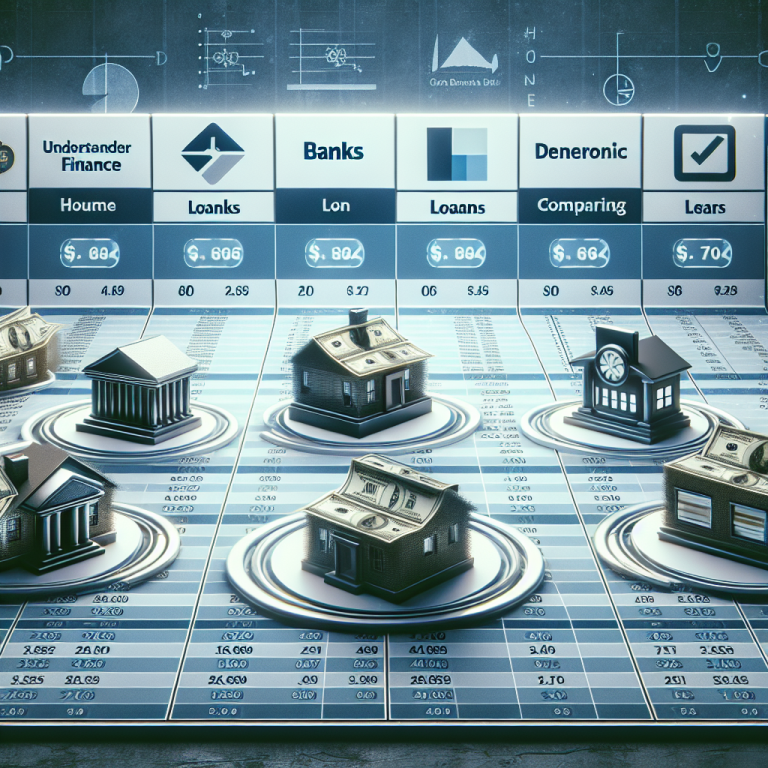The Ultimate Guide to Debt Consolidation: Using Payoff, Upgrade, and OneMain Financial Effectively
In today’s fast-paced financial landscape, debt consolidation has emerged as a powerful strategy for individuals overwhelmed by multiple debts. This guide aims to illuminate the path to effective debt management through platforms like Payoff, Upgrade, and OneMain Financial. By the end of this article, you will not only understand how to consolidate your debts but also learn valuable insights into various loan options, their benefits, and the technological advances that are shaping the lending industry. We invite you to dive deeper and discover how these tools can help you regain control of your financial future.
Understanding Debt Consolidation
Debt consolidation refers to the process of combining multiple debts into a single loan with a lower interest rate or more favorable terms. This approach helps simplify your payments and can reduce your overall debt burden. According to a report from Credit.org, nearly 35% of Americans seeking financial help consider debt consolidation to manage their liabilities.
When navigating debt consolidation, it’s essential to recognize the varying options available. Different consolidation methods, such as personal loans, balance transfer credit cards, or home equity loans, cater to distinct financial needs. For instance, personal loans from providers like Upstart often offer fixed rates that can help you budget your monthly expenses more effectively.
Carregando Oportunidades...
Understanding the nuances of these options allows borrowers to choose the best path tailored to their financial situations, and it’s critical to evaluate factors like interest rates, repayment terms, and any associated fees before making a decision. Furthermore, consolidating debt can drastically affect one’s credit score, depending on how the new loan is managed.
Exploring the Major Players in Debt Consolidation
Several key players in the debt consolidation scene offer various services tailored to consumers’ needs. Among them, Payoff, Upgrade, and OneMain Financial stand out due to their accessible platforms and comprehensive offerings.
Payoff specializes in helping individuals consolidate credit card debt. They focus on personal loans that can be paid off in fixed monthly payments, which simplifies budgeting and can lead to quicker debt elimination. Their unique model is designed specifically for credit card debt, allowing users to streamline their payments at lower interest rates compared to traditional credit cards.
Upgrade not only provides personal loans for debt consolidation but also includes a credit monitoring feature. This service helps borrowers manage their financial health proactively while providing transparency regarding their loan status and credit score. Upgrade stands out with its user-friendly interface, making it easy for even those apprehensive about technology to navigate their options efficiently.
OneMain Financial caters to individuals with different credit backgrounds. They focus on personal loans that can be used for various purposes, including debt consolidation. OneMain Financial’s flexible borrowing options and in-branch assistance make them a reliable choice for individuals seeking personalized guidance throughout the loan process.
Checklist: Evaluating Debt Consolidation Options
- Assess your current debt situation: Total amount owed, types of debt, interest rates, and monthly payments.
- Research various debt consolidation options: Consider platforms like Payoff, Upgrade, and OneMain Financial.
- Compare interest rates and terms: Look for the lowest rates and most favorable repayment plans.
- Check eligibility requirements: Ensure you meet the criteria for potential lenders.
- Evaluate customer reviews and experiences: Look for feedback on service quality and user satisfaction.
Advantages of Debt Consolidation
Debt consolidation offers several significant benefits to borrowers. One of the most compelling reasons to consider consolidating your debts is the potential for lower interest rates. Many borrowers find that consolidating high-interest credit cards into a lower-rate personal loan can save them a substantial amount in interest payments over time. A study by J.D. Power indicated that consumers who consolidate their debts typically reduce their interest rates by an average of 5-10%.
Additionally, consolidating multiple payments into one simplifies financial management. Instead of juggling various payment deadlines and amounts, a single monthly payment can enhance budgeting and decrease the likelihood of missed payments, which can further harm your credit score.
Moreover, a successful debt consolidation strategy can lead to improved credit ratings over time. By reducing total debt and making timely payments on your new consolidated loan, you signal to creditors that you’re a responsible borrower. This improvement can subsequently open doors to more favorable lending opportunities in the future.
Common Misconceptions About Debt Consolidation
Despite its advantages, debt consolidation is often surrounded by myths that can mislead potential borrowers. One prevalent misconception is that debt consolidation is a “quick fix” for financial problems. In reality, while it can provide immediate relief, it requires ongoing commitment to budgeting and financial discipline.
Another misunderstanding is that debt consolidation will harm your credit score. In truth, consolidating your debt can lead to credit improvement if done correctly. The key is to manage the new loan responsibly, ensuring timely payments, which demonstrates financial reliability to credit reporting agencies.
Lastly, some individuals believe that debt consolidation is only for those with excellent credit. However, many lenders, including OneMain Financial, offer solutions for those with varying credit scores, making it a viable option for a broader range of borrowers.
Technological Advances in Debt Consolidation
The rise of technology has revolutionized the debt consolidation landscape. Fintech companies are leveraging advanced algorithms and data analytics to offer personalized loan recommendations, enabling borrowers to find suitable options faster than ever before. For instance, Credible compares multiple lenders and presents tailored loan offers based on individual financial profiles.
Moreover, mobile applications are enhancing accessibility and convenience. Most lenders now provide apps that allow users to track their loans, monitor their credit scores, and receive alerts for due payments. This technological integration plays a significant role in empowering borrowers to take control of their financial situations.
As AI continues to develop, we can expect even greater personalization in the lending industry. Future innovations may enable platforms to offer real-time adjustments on loan terms based on changes in a borrower’s financial status or market conditions, ensuring that debt solutions remain flexible and user-centric.
Comparison of Popular Debt Consolidation Tools
| Provider | Loan Types | Interest Rate Range | Loan Amounts | Repayment Terms |
|---|---|---|---|---|
| Payoff | Personal Loans | 5.99% – 24.99% | $5,000 – $40,000 | 24 to 60 months |
| Upgrade | Personal Loans, Credit Monitoring | 6.95% – 35.89% | $1,000 – $50,000 | 36 to 60 months |
| OneMain Financial | Personal Loans | 18.00% – 35.99% | $1,500 – $20,000 | 24 to 60 months |
This comparison provides a clear view of the options available and helps you make an informed decision based on your financial needs and goals.
Frequently Asked Questions (FAQs)
1. What is debt consolidation?
Debt consolidation combines multiple debts into one single loan, typically with a lower interest rate, simplifying monthly payments.
2. Will debt consolidation hurt my credit score?
Not necessarily. If managed properly, debt consolidation can lead to credit improvement by lowering your credit utilization ratio and ensuring timely payments.
3. How do I determine if debt consolidation is right for me?
Consider your financial status, total debt amount, interest rates, and willingness to commit to a structured repayment plan.
4. What types of debts can be consolidated?
Most unsecured debts, like credit cards and personal loans, can be consolidated, but secured debts like mortgages may have different consolidation processes.
5. Are there fees associated with debt consolidation loans?
Yes, it’s essential to review the terms to understand any origination fees or penalties associated with the loan.
6. Can I consolidate debt with bad credit?
Yes, options like OneMain Financial cater to individuals with various credit profiles, although rates may vary significantly.
7. How long does the debt consolidation process take?
The timeline can vary but generally takes a few days to a few weeks, depending on the lender and your individual circumstances.
Conclusion
Debt consolidation can be an effective strategy for regaining financial control and simplifying your monthly payments. By understanding the options available through platforms like Payoff, Upgrade, and OneMain Financial, you can make informed decisions that align with your financial goals. Remember, the key to successful debt management is commitment and proactive monitoring of your financial health.
We encourage you to explore your options further and consider how you can leverage the tools discussed in this guide to pave your way to a debt-free future. Take the first step today and turn your financial situation around!



